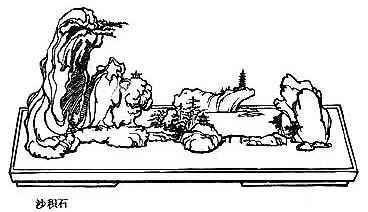Lun Yu 
 – The Analects of Confucius
– The Analects of Confucius
The Master discusses with his disciples and unveil his preoccupations with society. Tr. Legge (en), Lau (en) and Couvreur (fr).
Lunyu XIX. 3. (487)
The different opinions of Tsze-Hsiâ and Tsze-chang on the principles which should regulate our intercourse with others.
The disciples of Tsze-hsiâ asked Tsze-chang about the principles that should characterize mutual intercourse. Tsze-chang asked, "What does Tsze-hsiâ say on the subject?" They replied, "Tsze-hsiâ says: 'Associate with those who can advantage you. Put away from you those who cannot do so.'" Tsze-chang observed, "This is different from what I have learned. The superior man honors the talented and virtuous, and bears with all. He praises the good, and pities the incompetent. Am I possessed of great talents and virtue? – who is there among men whom I will not bear with? Am I devoid of talents and virtue? – men will put me away from them. What have we to do with the putting away of others?"
Legge XIX.3.
Tzu-hsia's disciples asked Tzu-chang about friendship. Tzu-chang said, 'What does Tzu-hsia say?' 'Tzu-hsia says, "You should make friends with those who are adequate and spurn those who are in- adequate." Tzu-chang said, 'That is different from what I have heard. I have heard that the gentleman honours his betters and is tolerant towards the multitude and that he is full of praise for the good while taking pity on the backward. If I am greatly 8uperior, which among men need I be intolerant of? If I am inferior, then others will spurn me, what point is there for me to want to spurn them?'
Lau [19:3]
Les disciples de Tzeu hia ayant interrogé Tzeu tchang sur l'amitié, Tzeu tchang leur demanda ce qu'en disait Tzeu hia. « Il dit, répondirent-ils, qu'on doit faire société avec les hommes convenables, et qu'il faut repousser les autres. » Tzeu tchang répliqua : « Ce principe ne s'accorde pas avec les enseignements que j'ai reçus. L'homme honorable honore les sages, et est indulgent envers la multitude ; il encourage par des éloges les excellents et a compassion des faibles. Suis-je un grand sage ? Quel est l'homme que je devrai repousser ? Suis-je dépourvu de sagesse ? Les hommes me repousseront ! Convient-il de repousser quelqu'un ? » Le principe de Tzeu hia est trop étroit. Tzeu tchang a raison de le blâmer. Mais ce qu'il dit lui-même a le défaut d'être trop large. Sans doute le sage ne rejette personne, mais il doit repousser toute amitié nuisible. (Tchou Hsi)
Couvreur XIX.3.

The Analects of Confucius – Lun Yu XIX. 3. (487) – Chinese off/on – Français/English
Alias the Lunyu, the Lun Yü, the Analects, les Entretiens du maître avec ses disciples.
The Book of Odes, The Analects, Great Learning, Doctrine of the Mean, Three-characters book, The Book of Changes, The Way and its Power, 300 Tang Poems, The Art of War, Thirty-Six Strategies
Welcome, help, notes, introduction, table.
Index – Contact – Top























